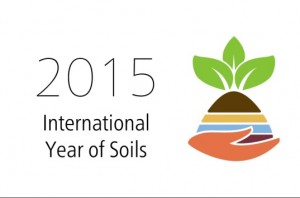By Koichi Ikegami, President of IRSA
I attended the International Conference on ‘Social and Sustainability Science ASEAN 2018: Agri-Food Systems and Rural Sustainability’ at Chulalongkorn University on 23-25 of January 2018. I was invited as President of IRSA. I had a keynote speech entitled as Ensuring Rural Sustainability in the Unequal Worlds. Major points of my speech were as follows; 1) Major Issues in the 21st Century such as Structuration of the North South Problem, Casino Capitalism or Speculative Capitalism, and Global Warming and Climate Change, 2) Flat World, but Unequal World: Other Side of Globalization, 3) Background of Rise of Alternative Movement , 4)Two Examples of alternative movement: Fair Trade and Creation of FEC Sufficient Territory in Higashi-Oumi city, Japan, 5)‘Mura’ Business: Model of Small Business of Village, by Village and for Village. Of course, I mentioned about next World Congress of IRSA, and asked that most of participants there would come to join us in 2020.
On the following day after Conference, I was also asked to give a mini lecture for establishing MOST School. Required theme is “Rural sustainability and contemporary social science approaches”. I did not realize what MOST meant until that time. It was a very new idea for me. MOST is a UNESCO’s intergovernmental science programme on social transformations. As for this regard, it is important to identify to what direction society transforms. The answer is towards sustainable society.
The both events were organized by Chulalongkorn University and UNESCO. There were lots of participants from ASEAN countries. One of my major impressions was that ASEAN countries paid strong attentions to sustainability. One of reasons for such attraction might be adoption of SDGs in 2015 as well as reflection of the results by development-oriented policies.
SDGs include not only poverty and hunger but also gender and partnership as well as sustainable agriculture. It is uncommon in Japan that the so-called Developed Countries such as Japan are involved in SDGs. One example indicates this fact very well, that a mayor of a city in Shiga Prefecture claimed strongly the SDGs-oriented policy by Prefecture Office of Shiga according to his understanding that SDGs addressed only Developing Countries.
It is an urgent task to build sustainable science in social science. I am strongly confident that rural sociology can contribute to accomplishing this task.

 Professor Koichi Ikegami has been elected President of IRSA for 2016-2020. Professor Ikegami is based in the Faculty of Agriculture at Kindai University, Nara, Japan. His scholarly work embraces the areas of food, agriculture, fair trade and community sustainability. He has held many important and influential roles over the past few decades including President of the Asian Rural Sociology Association and President of the Japanese Association for Rural Studies. He has also been a regional representative on the Council of IRSA. He has outlined his vision for IRSA which can
Professor Koichi Ikegami has been elected President of IRSA for 2016-2020. Professor Ikegami is based in the Faculty of Agriculture at Kindai University, Nara, Japan. His scholarly work embraces the areas of food, agriculture, fair trade and community sustainability. He has held many important and influential roles over the past few decades including President of the Asian Rural Sociology Association and President of the Japanese Association for Rural Studies. He has also been a regional representative on the Council of IRSA. He has outlined his vision for IRSA which can  In the last President’s Corner of 2015 I outlined evidence of the (largely negative) impacts of neoliberalism on farming and rural communities. One issue not covered was that of resistance to neoliberalism. In this President’s Corner I have attached an interesting overview of this issue by leading rural sociologists Professors Alessandro Bonanno (Sam Houston State University) and Steven Wolf (Cornell University). They provide examples of opposition to a corporate-based agri-food system, highlighting the groups which are proposing alternative futures. Their contribution is a background ‘white paper’ for the mini-conference on ‘The New Frontiers of Resistance in Global Agri-food’, to be held at the IRSA World Congress of Rural Sociology in Toronto this August.
In the last President’s Corner of 2015 I outlined evidence of the (largely negative) impacts of neoliberalism on farming and rural communities. One issue not covered was that of resistance to neoliberalism. In this President’s Corner I have attached an interesting overview of this issue by leading rural sociologists Professors Alessandro Bonanno (Sam Houston State University) and Steven Wolf (Cornell University). They provide examples of opposition to a corporate-based agri-food system, highlighting the groups which are proposing alternative futures. Their contribution is a background ‘white paper’ for the mini-conference on ‘The New Frontiers of Resistance in Global Agri-food’, to be held at the IRSA World Congress of Rural Sociology in Toronto this August. The UN General Assembly has declared this year the International Year of Soils. The aim is to increase awareness about the importance of soils to the planet’s future. How can rural sociologists – and other social scientists – become involved?
The UN General Assembly has declared this year the International Year of Soils. The aim is to increase awareness about the importance of soils to the planet’s future. How can rural sociologists – and other social scientists – become involved?